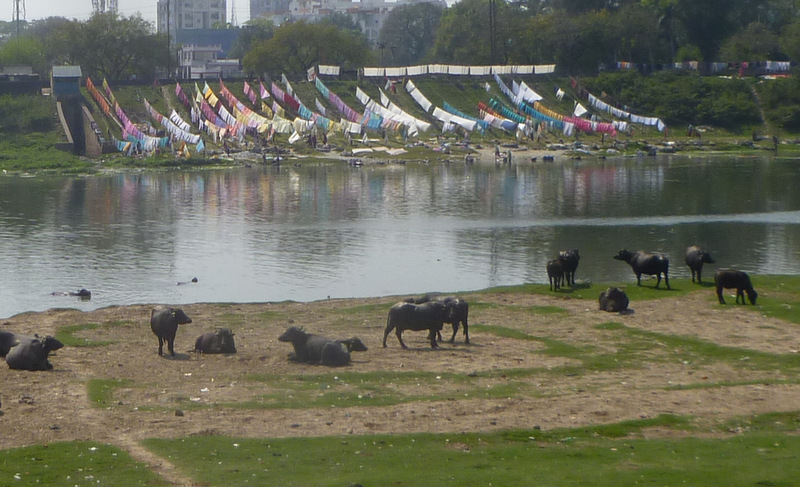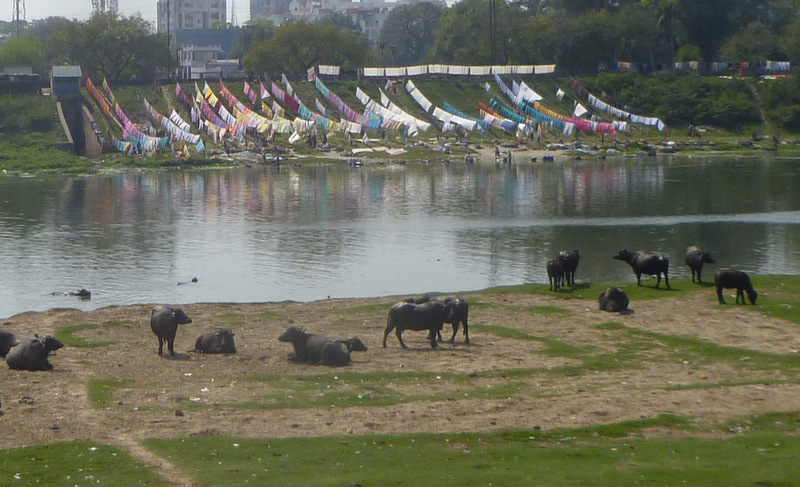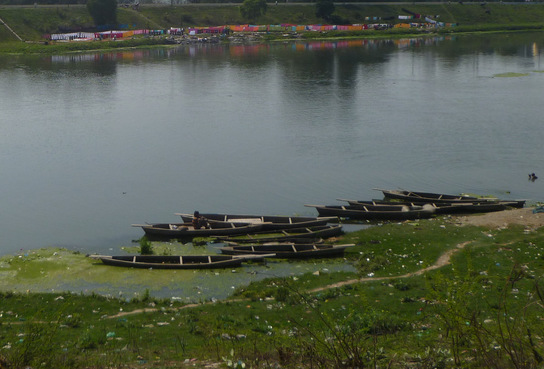We’re also getting to know the people who live around us, their families, and their stories. Many of those stories involve loss, because sisters or daughters have died in childbirth, parents have died in the prime of life from disease, and family members have been injured in accidents or suffer from chronic health problems. We are amazed by people’s resiliency as they deal with so much tragedy and death, and by the strength of the families here and their ability to care for the orphans, the elderly, and the otherwise vulnerable people among their relatives. It’s not uncommon to see a single son supporting his mother and sisters, saving up his earnings to pay for their dowries one at a time, or a single mother taking a job as hired help in a rich family’s home to be able to keep sending her children to school. Andy has spent a lot of time wandering around with the guys in our neighborhood, drinking chai and visiting their workplaces—most of which are recycling-collection stands or workshops where they make beautiful wooden furniture by hand. I’ve spent a lot of time visiting women, many of whom are literally hidden away from the outside world because cultural tradition, a conservative mother-in-law, and/or fear of sexual harassment (a threat which has some basis in reality but which is also trumped up and used as a means of control) keep them from ever leaving the house. We’ve both spent time visiting the families who live in crowded plastic and bamboo tents on the alley behind us, several feet lower and closer to the black river which surely expands during monsoon. As we fill our water drum from the leaky hose in the morning, we watch women and children from that alleyway haul water back and forth by hand in small containers because there’s no morning hose service to their homes, and they’re too close to the sewage canal to dig a well. And when we head over to our landlady’s back courtyard to use the toilet, we look over a low wall into that same alleyway where we know that there are no toilets at all.
There’s a custom in Indian culture that when guests are invited over for dinner, they eat first while the hosts watch. The hosts actually don’t eat until after their guests leave. When we first came to India, we found this an awkward and obnoxious arrangement, but the longer we’re here the more we come to appreciate it. In our community, a dinner invitation from a poor family is a big gift to begin with. Offering the guests food first—after you’ve already spent hours preparing it and are feeling hungry yourself—is sacrificial. You’re making sure that the guests eat until they are full, even if it means that there may not be enough left for you and you may go hungry, and even though you’ve just spent a large percentage of your income on that meal. In the past week and a half, we’ve already received this sacrificial gift many times over. We still don’t feel comfortable being given food first, but it has challenged us to give to others more sacrificially than we are used to doing.
The more we learn, the more we realize there is to learn, and we feel honored to be welcomed into our neighbors’ world. We feel humbled by how much more our neighbors have been able to offer us and to teach us in the past week and a half than we have been able to offer or to teach them. Coming as outsiders with nothing, as yet, to contribute, we have no claim on their generosity and friendship, much less their patience with our own ignorance and unintended faux paux. But if grace is undeserved favor, then our Muslim and Hindu neighbors are mediating our Father’s grace to us in abundance, and teaching us a lot about Him in the process.


